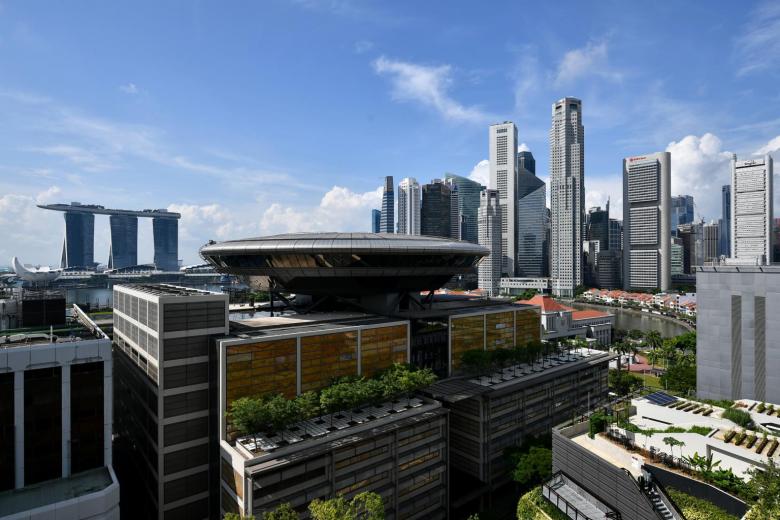Singapore’s intellectual property is protected in what ways? This is crucial for every company that considers Singapore a prospective location for its headquarters and has IP its key assets are rights.
This page gives the essential answers and a description of the organizations and initiatives available in Singapore to promote the creation and protection of property rights inside its territory.
Singapore is among the most comprehensive IP protection laws in the world. As a result, Singapore was ranked second regarding intellectual property rights in the Worldwide Economics Forum’s International Competitiveness Report in 2019.
📈🤖 Unlock unparalleled trading potential with GPT Stocks Master AI! Revolutionize your portfolio, leveraging real-time insights and predictive analytics. Don’t miss out – step into a world where precision and profitability meet. Ready to transform your trading journey? Click “Master My Trades” now for your exclusive access! ✨🚀📊

What exactly is intellectual property?
Intellectual property (IP) relates to any manufactured product whereby the law recognizes individual rights. You could register IP claims within Singapore through one of three methods: a patent, copyrights, or a logo.
Intellectual property can be an inventive technique or product secured by Singapore’s patent system. Patented innovations include the formulation for a medication, Ford’s production line, and Apple’s iPod. In addition, IP is a type of property that the proprietor could use and trade or lease for a price.
Singapore promotes the creation and protection of property rights.
The Singapore government unveiled its Intellectual Property (IP) Gateway Grand Plan around 2013. The Grand Plan seems to be a ten-year plan to make the tiny island republic the leading location for producing, licensing, and protecting IP rights.
The Strategic Plan offers changes in educating its workers to produce IP in its organizations to safeguard that IP through its IP-Box tax scheme.
Using substantial financial resources, rewards, and a generous Singapore administration promotes creating and implementing a tax structure. Registration of intellectual property.
The Department of Innovators, Entrepreneurs, and Organizations (IPOS) in Singapore assists creators, startups, and enterprises in developing and protecting their discoveries.
The MRA bonus is supplementary to the Seventeen percent total corporation tax rate. In addition, IPOS would be creating in-house search and inspection skills to boost efficiency and reduce filing costs in Singapore.
Singapore’s approach to intellectual property protection.
Singapore’s government acknowledges the ability to handle disagreements reasonably and effectively will encourage more extraordinary IP creation and licensing, which will boost the economy even further.
Singapore established a dedicated IP Tribunal in 2002 to address increasingly complicated IP matters. In addition, it created the only headquarters outside Geneva, the WIPO Mediation and Conciliation Institute, in 2010.
The IP Institute of Singapore provides a Postgraduate Diploma in Intellectual Property Law, guaranteeing that the nation has lawyers and jurists equipped to handle IP disputes.
Singapore Intellectual Property Law.
Singapore has a robust legislative structure and support facilities to protect patents, trademarks, copyrights, and other IP rights. Below is a high-level summary of the structure for each.
Patent Law.
A patent is a privilege provided to the inventor to restrict others from creating, using, importing, or offering for sale without authorization. A patent is effective for twenty years in Singapore. Once filed, the owner has the right to use, trade, or rent the patent.
Singapore does not award patents for innovations that promote objectionable, unethical, or anti-social conduct, including those relating to the clinical diagnosis of animal and human bodies.
Copyrights act.
The Copyright Act of Singapore covers new artwork such as books, software programs, films, artworks, musical work, and plays. It excludes concepts, techniques, methods, and discoveries since it is a protected representation, not the concept or finding. The creator or owner of copyrighted content has the only authority to publish, exhibit, transmit, or modify the work.
By definition, all forms of hired works remain to the artists. This assumed ownership, though, can be modified between the participants.
Unlike with patents, there is no registration system for copyrights in Singapore. Therefore, the copyright starts with creating the work; possessing an idea is inadequate.
Infringement legal penalties include monetary damages, an order, and the removal of the illegal content. In place of penalties, the copyright owner may seek “civil penalties” of up to S$10,000 for each work and S$200,000.
It may impose a penalty of upwards of S$20,000 and a prison term of 6 months. If declared guilty of “secondary violation,” the punishment can be up to S$10,000 for each piece and S$100,000. However, the prison term cannot surpass Five years.
Trademark.
A trademark represents a sign that a company uses to differentiate its items/products from others, as in a brand company’s logo. In Singapore, you may file a trademark to protect it under the Trade Marks Law. But instead, You may seek refuge beneath the legal system advantage of passing it without licensing it.
Businesses from Singapore must establish their trademarks. You safeguard your company image by prohibiting others from employing your logo who offer the same or goods that are somewhat equivalent or services.
A trademark is valid eternally when registered every ten years and could be leased or transferred to others. Unless the owner somehow does not use this within five years of registration, they will cancel it.
Conclusion.
Singapore has one of the most powerful statutory foundations for protecting intellectual property rights. Because of these safeguards, several of the world’s most giant IP-focused corporations have selected the country as their favorite location for R&D.
